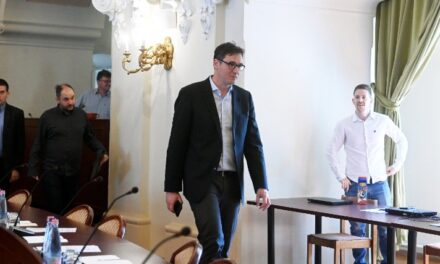Following the results of the elections, dramatic changes may begin, which may affect the fate not only of Polish society, but of the whole of Europe and even the whole world.
Jeszcze Polska nie zginęła, that is, Poland is not lost yet, these are the opening lines of the Polish national anthem, and it would be good to believe that this is indeed the case and will continue to be so. However, following the results of the elections, dramatic changes may begin, which may affect not only the fate of Polish society, but also the whole of Europe, and even in some sense the whole world.
Poland lies on a very dangerous geopolitical "tectonic" fault line, which of course is not surprising, because this, the "middle Europe" stretching from the Baltic to the Balkans, is itself a gigantic power fault line, and the inhabitants of the region have already received many "lessons" about the dangers of its plate tectonics.
These "lessons" are mainly about the fact that all the peoples, nations, and countries of the region are in a brutal geopolitical "vise", and the empires embodying this vice have always done everything and still do today to divide the inhabitants of the region and turn them against each other , even those living within the same country. This is precisely why it would be absolutely vital for the people living here to recognize this, and despite the efforts that try to turn them against each other, they are trying to increase their collective bargaining power with all existing means of cooperation. The agreement of the three kings was based on this at the time, and this is what the Visegrád cooperation is trying to do again.
The Polish elections that have just taken place can also thoroughly rearrange this, so it does not matter to us what is expected.
During the past centuries, the countries of the region were defined by the conflicts and forms of cooperation between the power aspirations of the German (including the Habsburg) and Russian empires. In other words, the two "nearby" empires have been present for centuries. But since the mysterious "empire selection power" did not allow Germanness and Russianness to become world empires even for a century, and even encouraged them to destroy each other during their (cunningly provoked) attempts in this direction, this caused immeasurable suffering to the inhabitants of the region, especially perhaps especially for Polish society.
In addition to the two local empires, however, there is also the current world empire, which is now the declining American empire, but the rising new world empire, China, is also rapidly increasing its influence. The two near and two distant empires, plus the "empire-selecting main power" itself, mean that the region as a whole and some of its countries ("localities") should stand in the complex force field of at least five global influence mechanisms. And, moreover, all of this is taking place today amid the eddies of a widening and deepening world war, so if we want to understand the reasons and possible consequences of the results of the Polish elections, we should do so embedded in this interpretive framework.
During the past three decades, it has become clear that in the new global dependency system under the alias of democracy, only a political force that is able to "collaborate" with each of the above five empires can come close to the government at all.
Of course, one must primarily be a collaborator with the empire-selecting power and the current world empire, that is, now with the American empire, but only those who can navigate this complicated force field of empires with the least loss can govern permanently. If he is too collaborative, i.e. too eager to help the empires operate the loot pumps, he will fail due to the effects of this on his own people, but if he opposes the empires by taking on too many conflicts, then they will crush him to death. And of course, rival empires can also retaliate if relations with rival empires are friendlier than permissible. We can now see a dramatic episode of this constant life-threatening tightrope in Poland and, following the Polish changes, in the whole of Europe.
The governing forces until now were perfect collaborators of the American empire, because although Poland was also a beneficiary of the peaceful cooperation based on mutual benefits of the two nearby empires (German and Russian), but the historical antipathy towards them would have preferred it if the conflictual relationship of these two arch-enemies weakened it mutually each other.
This is shown very spectacularly during the current world war, in which Poland does not hide the fact that, with the fatal weakening of its German and Russian opponents, it defines itself as a dominant regional power and envisions a Lithuanian-Polish-Ukrainian-Romanian imperial zone. However, the current Polish ruling structure in the global identity war is in complete opposition to this, where it rejects with a determination similar to Hungary all efforts aimed at smashing the spiritual, moral and spiritual foundations of the family, the nation and the great culture of the European Christian white man. This strategy, on the other hand, completely opposes the American empire and the empire-selecting power, and the current discreet attempt to overthrow it can largely be traced back to this. Behind the fault lines that seem to appear in the elections in the ruling system, the real division of Polish society is emerging, and this confusion dramatically indicates how deeply the peoples of the region are divided by the false narratives of the "reality industry" of global power.
Whatever government is formed after the promised long coalition negotiations, the compulsion to give answers to crucial questions will lock the new government into the same vise situation. But maybe
"Poland is not lost yet".












